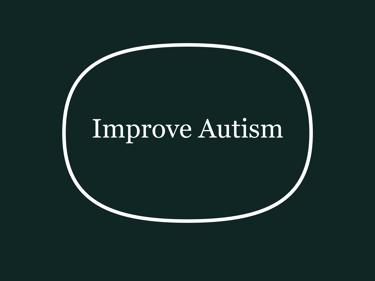Efficacy of oral folinic acid supplementation in children with autism spectrum disorder: a randomized double-blind, placebo-controlled trial
Authors:
Panda, P.K., Sharawat, I.K., Saha, S., Gupta, D., Palayullakandi, A. and Meena, K.
Study Overview
Design: This was a double-blind, placebo-controlled randomized controlled trial (RCT).
Participants: The study included 80 children with autism spectrum disorder (ASD), aged 2–10 years, split into two groups:
Folinic Acid Group: 40 children received oral folinic acid at a dose of 2 mg/kg/day (up to a maximum of 50 mg/day) for 24 weeks.
Placebo Group: 40 children received a placebo tablet daily for the same duration.
Standard Care: Both groups continued receiving standard behavioral interventions, such as Applied Behavioral Analysis (ABA) and sensory integration therapy.
Objectives:
Primary: To evaluate the change in Childhood Autism Rating Scale (CARS) scores after 24 weeks, which measures autism symptom severity (lower scores indicate less severe symptoms).
Secondary: To assess changes in behavioral problems (Child Behavior Checklist, CBCL), cognition (Vineland Social Maturity Scale, VSMS), sensory processing (Sensory Profile 2, SP-2), sleep (Childhood Sleep Habit Questionnaire, CSHQ), and serum levels of anti-folate receptor autoantibodies and folic acid.
Key Findings
Primary Outcome: Improvement in Autism Symptom Severity
Measurement: Change in CARS scores from baseline to 24 weeks.
Results:
Folinic Acid Group: Mean change of 3.6 ± 0.8 points.
Placebo Group: Mean change of 2.4 ± 0.7 points.
Statistical Significance: The difference between groups was statistically significant (p < 0.001), indicating that the folinic acid group experienced a greater reduction in autism symptom severity compared to the placebo group.
Secondary Outcomes
Behavioral Problems (CBCL):
Total Score: The folinic acid group showed a greater improvement (19.7 ± 9.5) compared to the placebo group (12.6 ± 8.4), with p < 0.001.
Internalizing Score (e.g., anxiety, depression): The folinic acid group improved more (15.4 ± 7.8) than the placebo group (8.5 ± 5.7), with p < 0.001.
Externalizing Score (e.g., aggression): No significant difference between groups (4.3 ± 2.9 vs. 4.1 ± 2.7, p = 0.75).
Other Measures:
Social Quotient (VSMS): No significant difference between groups (p = 0.91).
Sensory Processing (SP-2): The number of children with significant sensory processing abnormalities was similar between groups (p = 0.94).
Sleep Problems (CSHQ): No significant difference between groups (p = 0.24).
Observation: Both groups improved in multiple areas compared to baseline (p < 0.05), likely due to standard care, but folinic acid provided additional benefits in specific domains (CARS, CBCL total, and internalizing scores).
Role of Anti-Folate Receptor Autoantibodies
Prevalence: High-titer autoantibodies were found in 32/40 children in the folinic acid group and 33/40 in the placebo group (p = 0.78, no significant difference).
Impact on Treatment Response:
Folinic Acid Group: Children with high-titer autoantibodies showed a greater improvement in CARS scores (4.3 ± 1.3) compared to those with low or undetectable levels (3.2 ± 1.1), with p = 0.03.
Placebo Group: Improvement in CARS scores was similar regardless of autoantibody status (2.2 ± 0.8 vs. 2.7 ± 0.9, p = 0.11).
Implication: Children with high levels of anti-folate receptor autoantibodies may benefit more from folinic acid supplementation.
Safety Profile
Adverse Effects: No adverse reactions were reported in either group, suggesting that folinic acid supplementation is safe and well-tolerated at the studied dose.
Additional Observations
Serum Folic Acid Levels: There was no significant correlation between serum folic acid levels and improvement in CARS scores in either group (p = 0.23 for placebo, p = 0.47 for folinic acid).
Multivariate Analysis: Treatment with folinic acid was the only significant predictor of improvement in autism severity (p = 0.01), while autoantibody levels were not a significant predictor (p = 0.18).
Conclusions
Efficacy: Oral folinic acid supplementation, when added to standard care, significantly improved autism symptom severity (CARS) and certain behavioral problems (CBCL total and internalizing scores) compared to placebo.
Targeted Benefit: The improvement was more pronounced in children with high titers of anti-folate receptor autoantibodies, suggesting these autoantibodies could serve as a potential biomarker for identifying those likely to respond better to folinic acid.
Limitations: The study did not show significant improvements in externalizing behaviors, social skills, sensory processing, or sleep issues. It was a relatively small study (80 participants) with a 24-week duration, conducted in India where food fortification with folic acid is not mandatory, which may influence baseline folate levels.
Safety: Folinic acid was safe, with no reported adverse effects.
Future Research: Larger and longer-term studies are needed to confirm these findings and explore the broader applicability of folinic acid supplementation in ASD management.
These findings suggest that oral folinic acid could be a promising and safe adjunctive treatment for children with ASD, particularly those with high levels of anti-folate receptor autoantibodies.
https://pubmed.ncbi.nlm.nih.gov/39243316/
doi: 10.1007/s00431-024-05762-6


